Northern Tanzania’s K9 Division
Across East Africa there are a variety of projects and programmes in operation. Each of them has its own focus, be it community assistance, the protection of wildlife or a specific species, or working to conserve the open wilderness areas in Kenya and Tanzania. In addition to the positive impact initiatives that we operate in-house, there are a number of implementing partners that we support financially in order to ensure their continued operation in areas we consider crucially important. One of these implementing partners is Honeyguide.
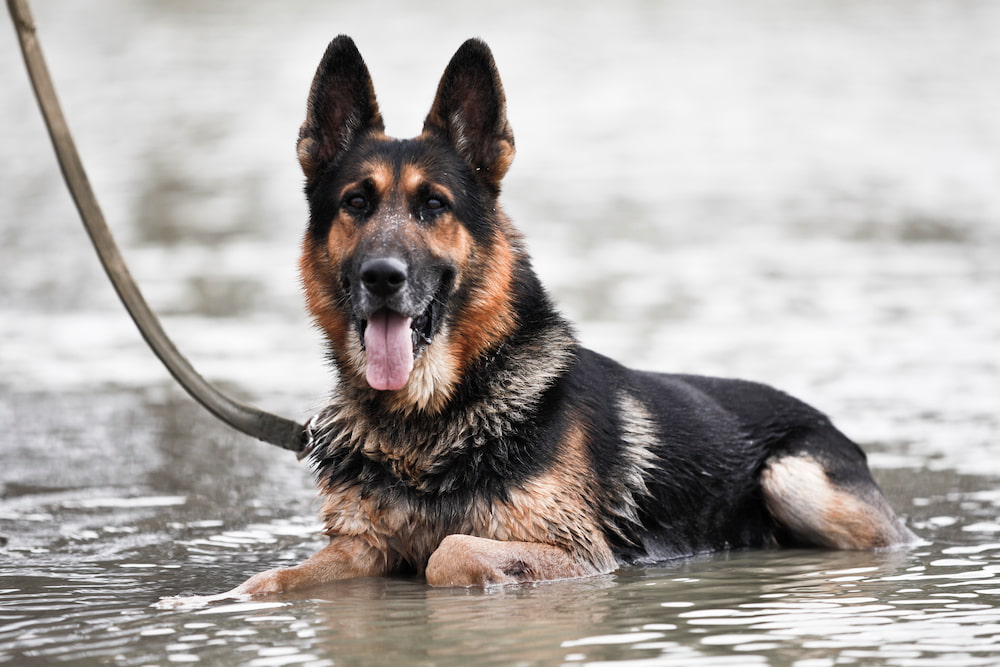
Everyone needs the occasional opportunity to take a break.
Where it began
From the early 90’s, there was Sokwe – a mobile camping operator in Tanzania with a strong interest in community programs like hiring and training ex-poachers to be camp security guards or working with local farmers to sell fresh produce to safari camps. The interest in community development was there from the outset, and it was in this space that Damian Bell and Ole Kirimbai became friends. In 2004, Sokwe merged with some of East Africa’s original family-run safari companies, to form Asilia Africa. Damien and Ole Kirimbai opted to continue with the community development work they had already been involved in and, with seed funding from Asilia, formed Honeyguide in 2007 – a non-profit organisation promoting community conservation and development. Today, Honeyguide runs a variety of programs in northern Tanzania, with an emphasis on community owned conservation. One of these programs, is the K9 anti-poaching unit.
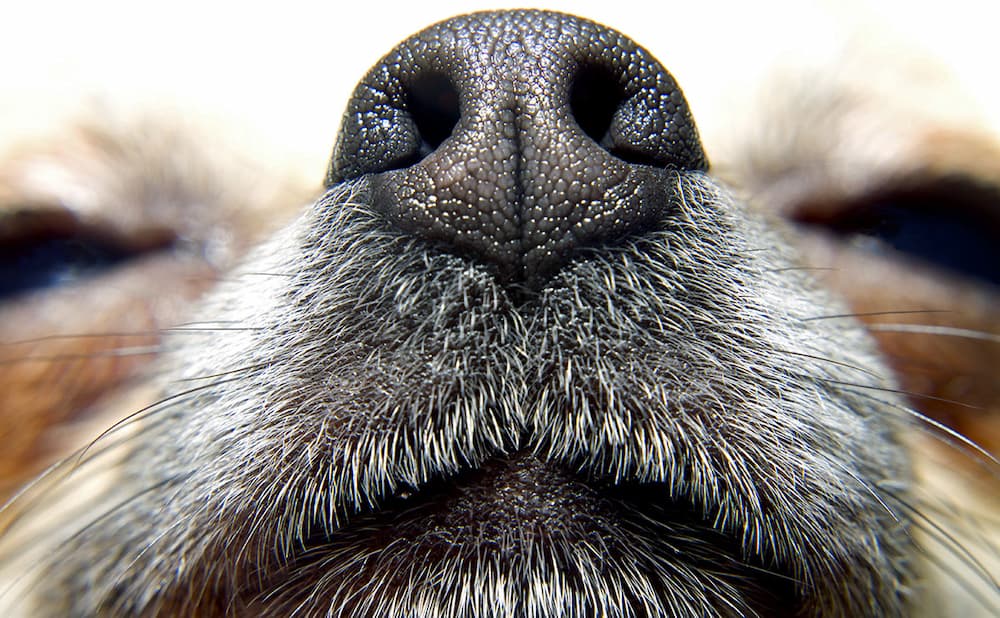
A dog's heightened ability to detect and analyse a scent is what makes it so successful in this arena.
On the scent
Dogs have a keen sense of smell, making them the perfect companion for tracking a scent. While humans have around 5 million receptors in the nose, dogs have over 200 million. Adding to this, the area of a dog’s brain devoted to the analysis of odours is roughly 40 times larger than the comparable part of the human brain. Even the way their nostril’s function aids them in the act of tracking as they can determine in which nostril a scent arrived, guiding them left or right as they weave along an invisible trail.
The first K9 unit was established in 2011, operating in the West Kilimanjaro region where elephant poaching was becoming a growing concern. Within two years of the introduction of the unit, all elephant poaching ceased. Such rapid results against elephant poaching were unheard of, which immediately attracted the attention of other community conservancies and wildlife management areas in northern Tanzania. Around this same time, Manyara Ranch Conservancy were losing an average of 6 elephant per year to poaching, prompting them to reach out to Honeyguide with an expression of interest in the services of their anti-poaching unit. The unit was deployed, and the results were immediate. However, when the unit departed the conservancy, poaching resumed, leading to the establishing of a permanent kennel in the ranch in 2016.
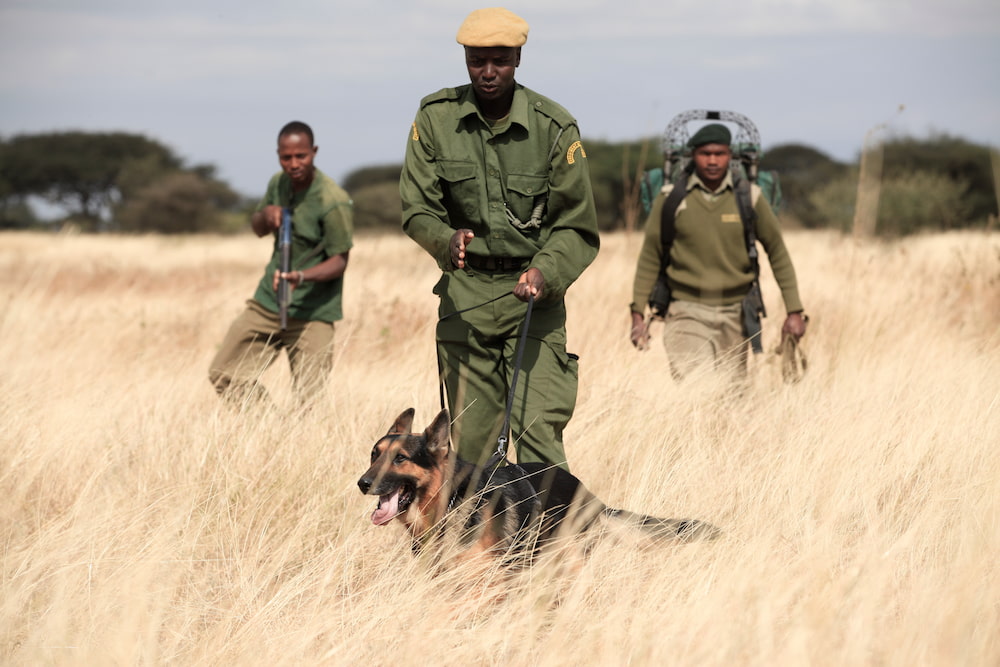
Patrol units act as a deterrent to potential poachers and regularly remove snares from the field.
Keeping busy
There are currently two teams operating in northern Tanzania. The team based in Manyara Ranch responds to incidences across Arusha, Tarangire and Lake Manyara national parks, as well as the Wildlife Management Areas surrounding Manyara Ranch of Burunge and Randilen. The second team is based in the western Serengeti region, covering the Serengeti National Park, Grumeti and Ikorongo reserves, and the Ikona Wildlife Management Area. These small teams of just a couple of dogs, their handlers and a support unit are covering enormous areas of wilderness, responding to a variety of incidences relating to both wildlife and people.
In all these areas, there are communities and settlements living in close proximity to the wildlife of East Africa, which often results in opportunistic poaching for food. Wire snares are frequently left in place for days at a time, hoping to entangle an unsuspecting antelope. While the impact of these snares on the population of impala may not be overly concerning, these snares will occasionally trap big cats or endangered animals like pangolin and aardwolf. The injuries these snares can inflict are horrific and frequently result in death. When the K9 units are on patrol, the dogs will often pick up a scent to follow, leading the units to snares which are then dismantled. Over the last three months, more than 150 snares were sized by the teams across these regions.
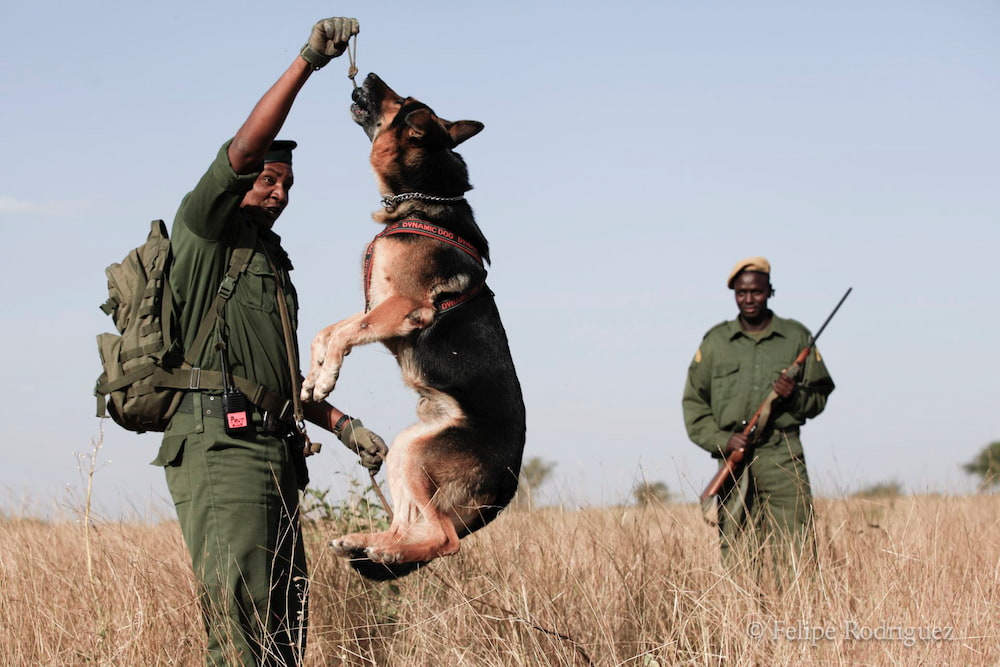
The dogs undergo regular exercise and training, but play time is equally as important.
Dog detectives
The statistics from West Kilimanjaro and Manyara Ranch speak for themselves, where the K9 units have had a significant impact in the fight against elephant poaching. But the role of these units does not stop there. The reputation of the dogs to track a scent has not been overlooked by the local police, and they are regularly called upon to assist in instances of theft within communities. Using the scent left behind on items after a break-in, the dogs have successfully led police to the front door of a thief’s house, or identified the culprit from a line-up of suspects. In addition to assisting within local communities, the team of “dog detectives” has worked with Tanzania National Parks (TANAPA), the Wildlife Division and both community and government ranger teams across northern Tanzania, leading to major arrests of poachers and the confiscation of ivory, bush meat, and weapons.
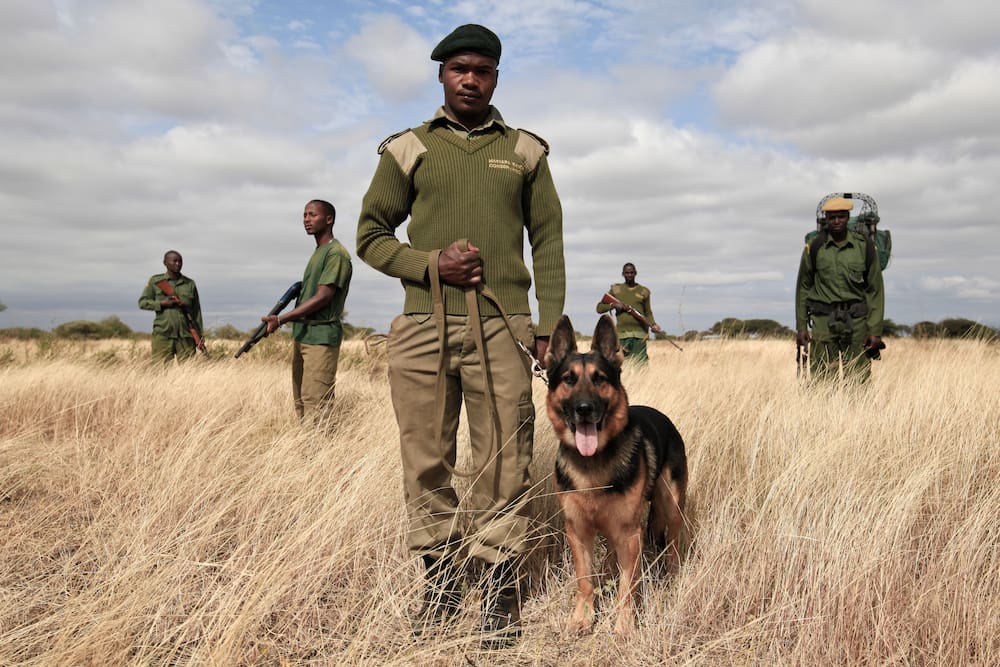
The relationship between the dog and it's handler is key to the success of the unit.
Travel with purpose
Every guest that stays in an Asilia camp, directly contributes US$5 per night towards the various positive impact initiatives supported by Asilia. These funds, in conjunction with donations received via Asilia’s charitable arm, Asilia Giving, are channelled into the support of our implementing partners. There is only so much we can achieve alone, but by supporting these partners we are able to contribute towards wilderness protection on a far larger scale and make a genuine and meaningful impact. When you choose to stay in an Asilia property, you are choosing to contribute towards the long-term protection of East Africa’s wilderness areas and the wildlife that depend on them, giving purpose to your travel.
More Positive Impact Articles

Electric Vehicles: The Future Of East African Safari Travel?
12 January 2020October 2019 saw the arrival of our first electric, solar-powered safari vehi...

Its Our 15th Birthday: Celebrating 15 Years of Making a Genuine Difference
08 November 2019This year, we're celebrating our 15th birthday and commemorating 15 years of...

World Tourism Awards 2019: Asilia Recognised For Our Positive Impact
01 November 2019The World Tourism Awards acknowledge, reward, and celebrate excellence across...

Supersized Traditional Maasai Necklace
21 October 2019In 2009, we became a founding member of the Mara Naboisho Conservancy and sin...





